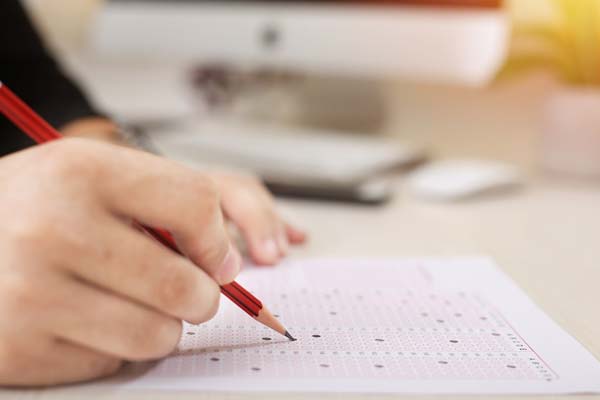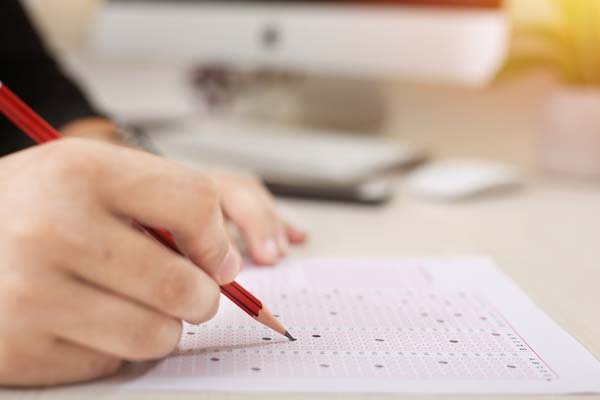Can You Retake IGCSE Exams? Everything You Need to Know
Retaking an IGCSE exam can be a daunting prospect, but it’s a question that many students have asked. Can you retake the IGCSE exams? The short answer is yes, you can.
If you’re unhappy with your IGCSE results, retaking the exam is an option. You can retake any IGCSE exam but must resit all the exams in the same session to get a new grade.
It’s important to note that you can only retake an IGCSE exam if you’ve previously sat the exam at least once.
There are a few things to remember when retaking an IGCSE exam. Firstly, you’ll need to pay a fee to resit the exam.
Additionally, you’ll need to ensure you’re well-prepared for the exam, as retaking an exam doesn’t guarantee a better result.
Understanding IGCSE Exams
IGCSE exams cover various subjects, including languages, humanities, sciences, and vocational subjects. Students can take individual IGCSE subjects or a combination of subjects to earn a certificate.
The IGCSE syllabus is created to adjust to various educational systems and curricula easily. Updates are made consistently to keep it current and aligned with changes in subject areas.
Cambridge IGCSE Physics (0625) and Cambridge International A Level Mathematics (9709) are two popular IGCSE subjects. Both universities and employers globally acknowledge both degrees. They open doors for additional educational prospects.
IGCSE exams are graded on a scale from A* to G, with A* being the highest grade. Students who do not achieve a passing grade can retake the exam in a subsequent exam series.
Retaking an IGCSE exam involves registering for the exam again and paying the exam fee. Students can choose to retake the entire exam or specific components.
Retaking an IGCSE exam can benefit students who want to improve their grades or still need to pass the exam on their first attempt. However, it is essential to note that retaking an exam does not guarantee a higher grade.
🌟 Hey Students! 🚀 Ready for the ultimate experience? Join us on Studentsinside.com's Facebook, YouTube, WhatsApp, and LinkedIn. Click now for tips, fun, and success vibes! 🌈✨ #StudentLife #JoinUs
Exam Series and Entry Details
When retaking IGCSE exams, understanding the exam series and entry details is crucial.
There are two main exam series for IGCSE exams: the June and November series. The entry fee for each exam series may vary depending on the exam board and the country where the exams are being taken. Late entry fees may also apply if the entry deadline is missed.
If a candidate wishes to retake an exam, they must submit a retake entry by the deadline. This can be done by ticking the ‘retake’ box next to the entry on the entry form. It is important to note that this cannot be added later.
The entry deadline for each exam series is as follows:
- 11 March for May exam series (Checkpoint)
- 17 April for June exam series (General Qualifications)
- 16 September for October exam series (Checkpoint)
- 21 September for November exam series (General Qualifications)
It is recommended that candidates check with their exams officer or center for specific details regarding entry deadlines and fees.
Candidates carrying forward marks from a previous exam series to the November exam series are also considered retake entries.
Additionally, any entry for the November exam series for a syllabus the candidate sat in the previous June exam series is also considered a retake.
Retaking IGCSE Exams
Retaking IGCSE exams is common for students who want to improve their grades or miss the exam due to unforeseen circumstances. To retake an IGCSE exam, students need to resit all of the exams for that subject in the same exam session.
The rules for resubmitting coursework vary by subject, so students must check with their teacher to see if they need to. Additionally, students must be aware of the retake deadline, usually a few weeks after the main exam series.
School students can retake IGCSE exams through their school, while private candidates can register through the British Council or other approved exam centers.
Students must prepare well for their retake exams to ensure they achieve their desired grades. They can use past papers, revision guides, and other resources to help them prepare.
It is also worth noting that the retake grade will be the one that appears on the certificate, not the original grade. Therefore, students should consider whether it is worth retaking the exam, as it may only sometimes lead to a higher grade.
Exam Results and Re-Marking Process
After taking an IGCSE exam, candidates eagerly await their exam results. While some students may be satisfied with their grades, others may not be content with their exam results.
If candidates feel their exam result does not reflect their work, they can request a re-mark.
The exam marking process is designed to be fair to all students. However, mistakes can happen; sometimes, a candidate may feel that their grade must accurately represent their performance.
In such cases, the candidate can request a re-mark, which involves a full clerical recheck of their exam papers.
The re-marking process ensures that all marks on the exam papers have been correctly counted and there have been no mistakes when calculating the final grade.
It is important to note that the re-marking process does not guarantee that the candidate’s grade will be changed. If the re-marking process confirms the original grade, the candidate’s exam result will remain unchanged.
Candidates can request a re-mark through their school or exam center. The re-marking fee varies depending on the exam board and the subject. You’ll get a refund for the re-marking fee if it results in a grade change.
Candidates should also remember that there are deadlines for requesting a re-mark. The deadline for requesting a re-mark varies depending on the exam board and the subject. Candidates should check with their school or exam center for specific deadlines.
Implications for Career and Education
Retaking IGCSE exams can impact a student’s future career and education. Although retaking is an option, it’s essential to consider the potential results beforehand.
In terms of education, retaking an IGCSE exam may delay a student’s progress towards higher education. It may also require a student to repeat coursework, which can be time-consuming and costly.
Additionally, retaking exams may prevent students from missing out on other educational opportunities, such as internships or study abroad programs.
Furthermore, retaking IGCSE exams may impact a student’s A-level results. Many universities and colleges consider a student’s IGCSE grades when making admissions decisions.
If a student retakes an exam and receives a lower grade, it may negatively affect their chances of acceptance into their desired program.
On the other hand, retaking IGCSE exams can also positively affect a student’s career and education. For example, if a student did not perform well on an exam due to personal circumstances, retaking the exam may allow them to demonstrate their true abilities.
Role of Examiners and Cambridge International Examinations
Cambridge International Examinations (CIE) are known for their rigorous and fair assessment of students’ knowledge and skills.
The exams are marked by experienced examiners trained to maintain high standards of accuracy and consistency.
Examiners play a crucial role in the assessment process. They are responsible for marking the exam papers and providing student feedback.
They are trained to assess the student’s performance based on the marking scheme provided by CIE. The marking scheme ensures the assessment is fair and consistent across different examiners.
CIE employs skilled examiners chosen for their qualifications and expertise. They become well-acquainted with the marking system and assessment procedures through rigorous training.
The examiners are also monitored regularly to ensure that they maintain the required standards of accuracy and consistency.
CIE also supports the examiners to ensure they can perform their duties effectively. They provide detailed guidelines on how to mark the exam papers and provide feedback to the students.
They also provide training and support to the examiners to help them improve their skills and knowledge.
Involvement of the British Council and GCSEs
The British Council is a well-known entity that provides various international exams, including IGCSEs. They offer exam retakes and re-marking services for candidates who want to improve their grades.
For IGCSEs, candidates can retake any exam they want, and there is no limit to the number of times they can retake. However, they must pay the exam fees again for each retake.
The British Council also offers an inquiry about results service, where candidates can request a review of their exam paper if they believe there has been an error in the marking.
However, GCSEs restrict the frequency of exam retakes. Individuals can redo GCSE exams in either November or June, necessitating payment of the exam fees for each attempt.
If a candidate has already achieved a grade of C or above in a subject, they cannot retake the exam to improve their grade.
The British Council also offers GCSE exams for international candidates who want to study in the UK. They provide exams for English, Maths, Science, and Humanities. Candidates can take these exams at British Council centers in their home country.








